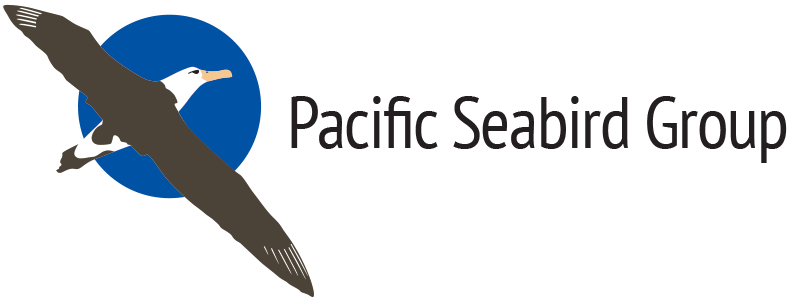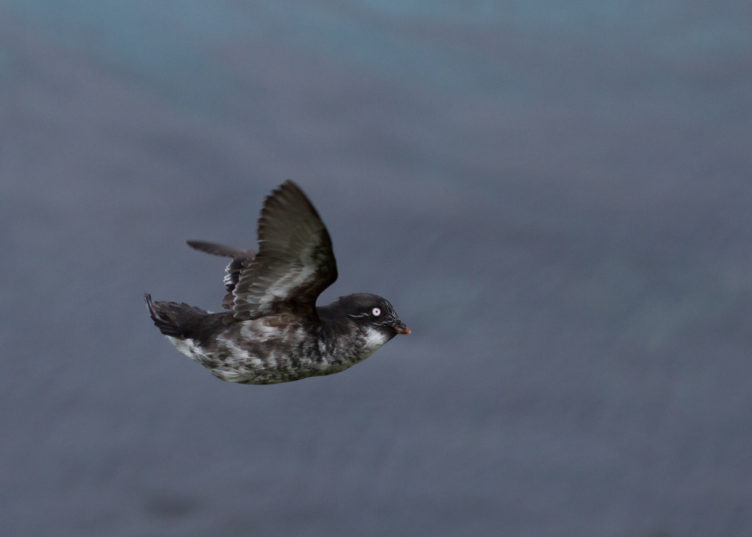Graduate Position: Multi-decadal response of a seabird to rapid warming in the Arctic
We are looking for motivated MSc or PhD students to work with Dr. Kyle Elliott, at McGill University, and co-supervisors Dr. George Divoky, Cooper Island Arctic Research, and collaborators at the French National Centre for Scientific Research (CNRS) to participate in the data analysis and ongoing maintenance of the Cooper Island research. Deadline to apply: 11/30/2023.
Agency/Organization: McGill University, Cooper Island Arctic Research, and the French National Centre for Scientific Research (CNRS)
Location: Montreal, Quebec, Canada
Website: Click here
Job Description: Mandt’s Black Guillemot is a high Arctic seabird and one of the few with a year-round association with sea ice. It breeds at colonies in proximity to summer pack ice and occupies the marginal ice zone during the nonbreeding season. A breeding colony on Cooper Island, off northern Alaska, has been studied since 1975, when it numbered less than 20 pairs. Guillemots are cavity nesters and provision of nest sites in the 1970s and 1980s resulted in the rapid growth of the colony to over 200 pairs. A long-term episodic decline began in 1990 with the colony reduced to less than 50 pairs in the 2020s. The colony’s three-decade decline has been driven by major decreases in the species’ sea ice habitat in the Western Arctic resulting from anthropogenic warming and modified atmospheric circulation. The resulting decrease in availability of Arctic cod, the preferred prey, has reduced breeding success and overwinter survival. Sea ice loss is continuing, and the quasi-extinction of the study colony is predicted before midcentury. The pace and extent of the ongoing environmental change in the Arctic have been among the greatest on the planet. Long-term biological data sets are uncommon in the region and the Cooper Island data sets provides an unprecedented opportunity to examine the response of an upper-trophic level predator to climate-driven changes in an Arctic marine ecosystem. The detailed data obtained on the colony includes breeding biology, feeding ecology and demography variables obtained annually during the five-decade arc of the population’s growth and decline. Additionally, in the past decade data loggers have been deployed to examine diving behavior and nonbreeding movements. Banding of all nestlings and most adults since 1975 allows consideration of variation by individual, age, experience, and pedigree for many analyses.
Your role: We are looking for motivated MSc or PhD students to work with Dr. Kyle Elliott, at McGill University, and co-supervisors Dr. George Divoky, Cooper Island Arctic Research, and collaborators at the French National Centre for Scientific Research (CNRS) to participate in the data analysis and ongoing maintenance of the Cooper Island research. The scope, duration and size of the data sets provides a multitude of potential research avenues. The specific topics of graduate research will be determined collaboratively by the senior investigators and successful applicants. Potential areas of study include:
- Environmental and individual factors affecting egg size
- Effect of prey availability and parental experience
- Heritability as a factor in breeding performance
The results of the work will provide important information on changes in a marine system that has been undergoing
rapid change due to global warming. Fieldwork will consist of 2-3 weeks on Cooper Island maintaining the long-term data sets. The student will have the opportunity to learn to co-develop scientific research, conduct marine fieldwork, and provide evidence of major ecological change in the Arctic that will be valuable to researchers, policy makers and the public. The potential start date is 1 September 2024.
Qualifications:
Essential skills and qualifications:
- An undergraduate degree in ecology, conservation science, environmental science,
or related field. Relevant work-related experience will also be considered. - Strong research, leadership, inter-personal and communication skills.
- Enthusiasm and a genuine curiosity about the natural world and concern for its well-being.
Desirable Skills: Modeling and coding skills in Program R.
Wage: N/A
To apply: We are committed to equity and inclusion, recognizing that diversity within our research teams enhances academic and scholarly excellence. We welcome candidates who are racialized/visible minority persons, women, Indigenous persons, persons with disabilities, ethnic minorities, and persons of minority sexual orientations and gender identities, to self-identify in their application. Such information will be treated in the strictest confidence and used only to enhance equity and inclusion in our research team. Applicants should send the following to Kyle Elliott (kyle.elliott@mcgilll.ca) by 30 Nov 2023: 1) Letter of interest summarizing your experience; 2) Curriculum Vitae; 3) Contact details for three references; and 4) University transcripts (unofficial are fine). Please use the subject line Black Guillemot Project application.
Application Deadline: 11/30/2023
Start Date: 9/1/2024
Contact: Kyle Elliott (kyle.elliott@mcgilll.ca)






